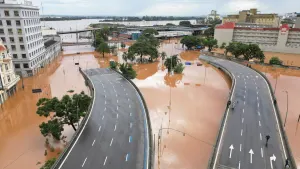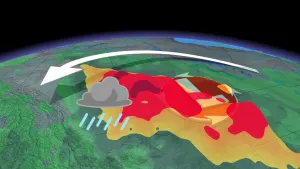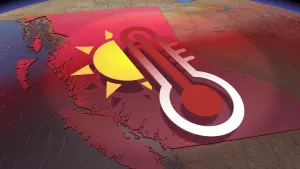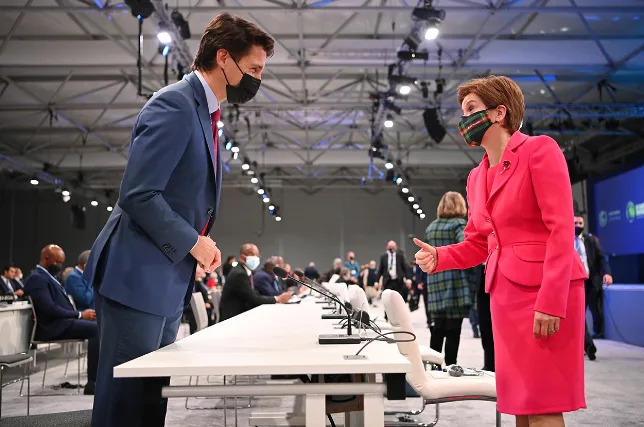
Trudeau calls on a big step to cap carbon emissions at COP26
Climate change affects people around the world disportionately. Delegates at COP26 suggest high-carbon producing countries like Canada need to commit to solutions.
Around 120 leaders are attending the United Nations COP26 climate summit in Glasgow this week to set a path that limits global heating to 1.5°C. It is imperative the world takes immediate steps to cut carbon emissions because these emissions, which mainly come from fossil-fuel use, will last for centuries.
In Glasgow, Canada’s Prime Minister Justin Trudeau announced one incremental step: a cap on Canada’s oil and gas emissions. These are emissions from the production of oil and gas which reached 191 million tons (Mt) in 2019 making it Canada’s largest source of carbon pollution. They are also far more than emissions of most countries such as Pakistan (174.5 Mt) with a population of 220 million people.
Trudeau called the oil and gas cap "a big step that’s absolutely necessary."
Although the cap was first announced during the Federal election in September, there are no details of how the cap will work or when it will be in place. Nor does the cap curb the oil and gas industry’s plans to expand production nor the enormous emissions that result from using all the oil and gas Canada produces. For example, Canada’s oil sands produce 3.0 million barrels of oil a day which adds about 500 Mt of carbon to the atmosphere every year. The oil sands industry plans to increase production 25 per cent by 2030.
Canada’s biggest climate challenge is the oil and gas industry and the proposed cap fails to address the biggest issue of “pumping out more and more atmosphere-destroying fossil fuels,” said Dale Marshall, the National Climate Program Manager at Environmental Defence.
“Canada has the weakest 2030 emissions reduction target in the G7, gives the most public financing to oil and gas companies in the G20,” Marshall said in a statement.
Oil and gas companies operating in Canada “have climate strategies that will accelerate the climate crisis,” according to a report released Wednesday Nov 3 in Glasgow by Environmental Defence Canada and Oil Change International. Titled Canada’s Big Oil Reality Check the report says the climate plans of large oil and gas producers in Canada are wildly out of step with the bare minimum for 1.5°C.
Canada is a wealthy country that needs to be doing much more to do its fair share, said Malaika Collette, a Fridays For Future climate activist. “We should be increasing our targets, ambitions, and plans,” Collette told the Weather Network from Glasgow. “Our actions do not currently represent that of a climate leader.”
Collette is in Glasgow as a coordinator for the “Mock COP 26”, a two-week virtual meeting with youth from 140 countries who show what they would do if they were in charge. Canadians should be following what’s happening in Glasgow and listening to activists from areas experiencing serious climate impacts that are a “consequence of decisions made by Global North politicians,” she said.
The economy always comes before climate action in Canada, said Evangeline Kroon, a political science Ph.D. student at York University. “It will take strong and brave leadership to change that,” Kroon told The Weather Network.
Youth don’t turn to politics for solutions but towards activism. They can’t understand why climate polluters continue to get tax cuts and other subsidies or why simple solutions to cut emissions aren’t implemented, she said.
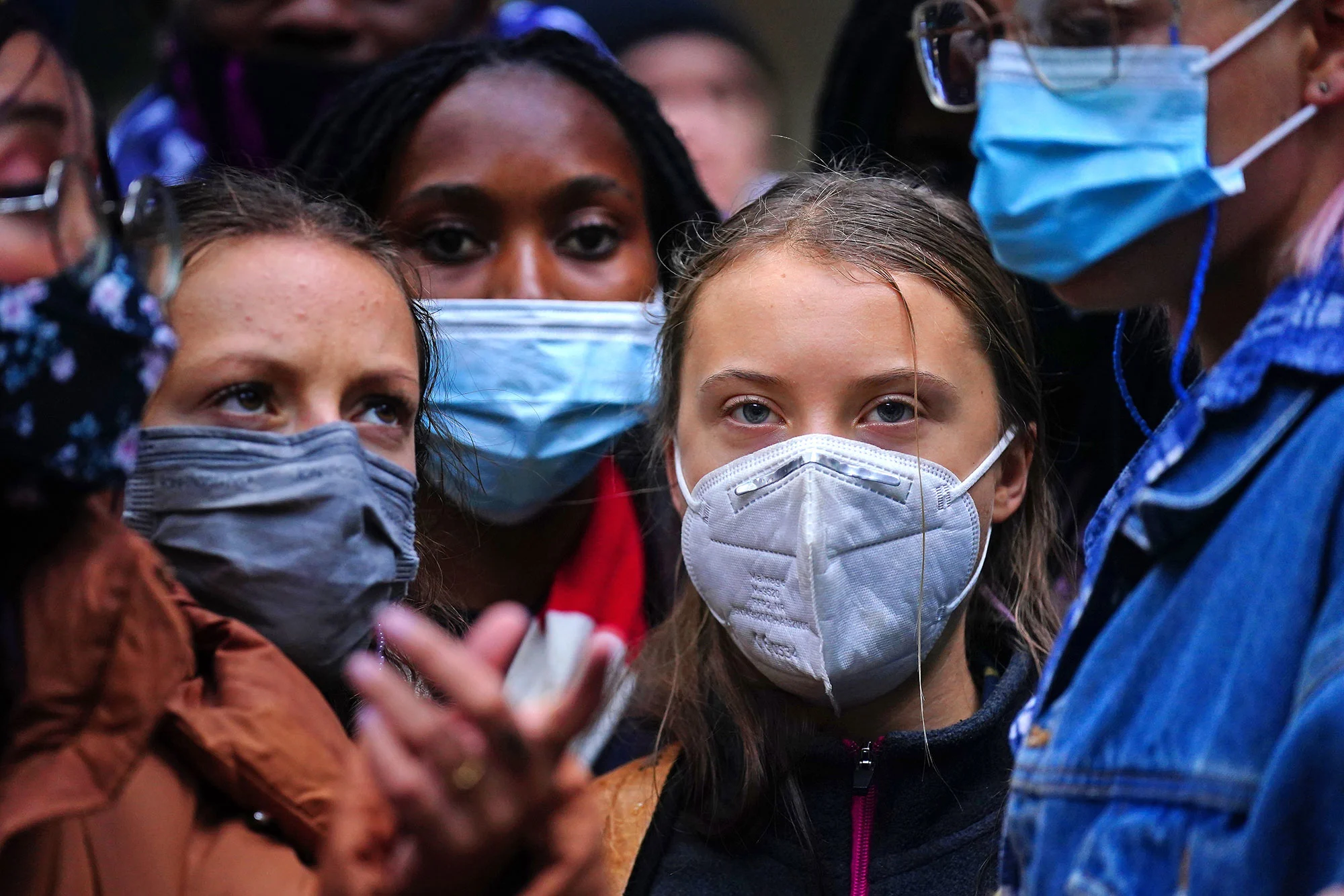
Teenage activist Greta Thunberg (centre right) joins activists taking part in the Youth Strike to Defund Climate Chaos protest against the funding of fossil fuels outside Standard Chartered Bank in London. (Victoria Jones/PA Images/ Getty Images)
Glasgow is the first time Canada has come to any UN climate meeting with a strong emissions-reduction package already in place, said Eddy Pérez of the Climate Action Network - Réseau action climat (CAN-Rac) Canada, a coalition of more than 100 organizations across the country. Over the past year Canada has created a number of regulations and initiatives that outside experts believe will bring emissions down 30 per cent compared to emissions in 2005 by the year 2030 as previously reported on The Weather Network.
“That doesn’t make up for what Canada should have, and could be doing, as a rich country with high carbon emissions,” Pérez told The Weather Network from Glasgow.
Canada has a serious credibility issue with nations in the Global South and should admit “we’re not doing enough and are ready to do more,” he said. Among the first actions for Canada is to phase out the estimated $14 billion a year in fossil-fuel subsidies as part of an accelerated transition to clean energy around the world.
“Canadians expect fossil-fuel use to decline. Subsidies to prop up the industry hurts the Trudeau government’s claims to be a climate leader,” said Pérez.
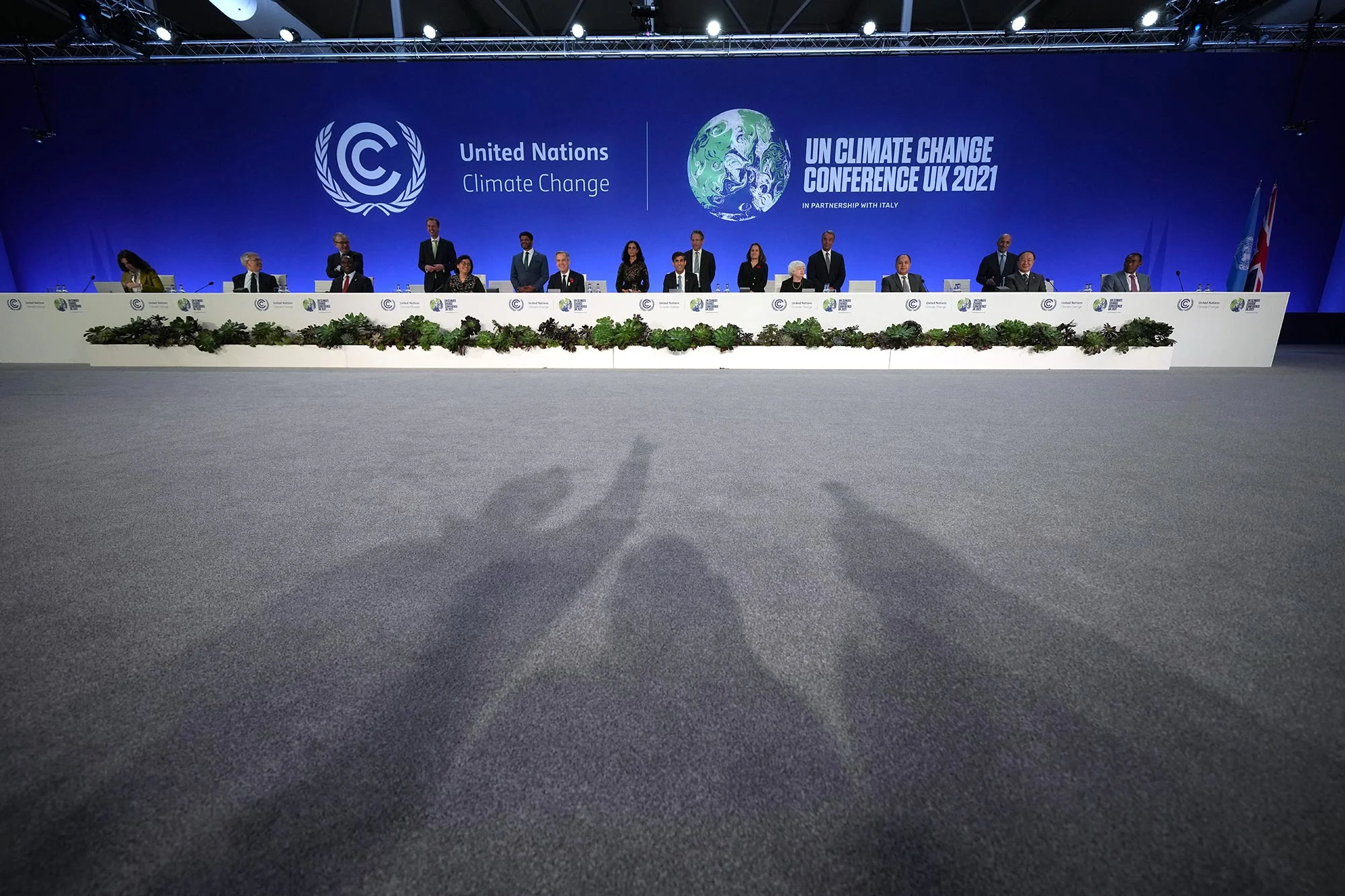
World finance ministers at COP26 on November 3, 2021 in Glasgow, United Kingdom. COP26 is the 26th "Conference of the Parties" and represents a gathering of all the countries signed on to the U.N. Framework Convention on Climate Change and the Paris Climate Agreement. The aim of this year's conference is to commit countries to net-zero carbon emissions by 2050. (Christopher Furlong - WPA Pool/ Getty Images)
Poor countries are hard hit by climate change and wealthy, high-carbon countries like Canada promised in 2009 to help by providing a minimum of $100 billion a year by 2020 but have failed to do so. Canada has yet to pay its fair share, although it recently announced a doubling of its contribution to $5.3 billion over the next five years.
Canada also needs to strongly back the Paris agreement target of 1.5°C and increase it’s 2030 target from 40 to 45 per cent reduction to 60 per cent reduction by 2030.
“Canadians know how to step up...We need to make the transition happen,” said Trudeau at his final news conference in Glasgow on Tuesday. “We’re serious about tackling climate change.”
Thumbnail credit: Jeff J. Mitchell/ Getty Image News







